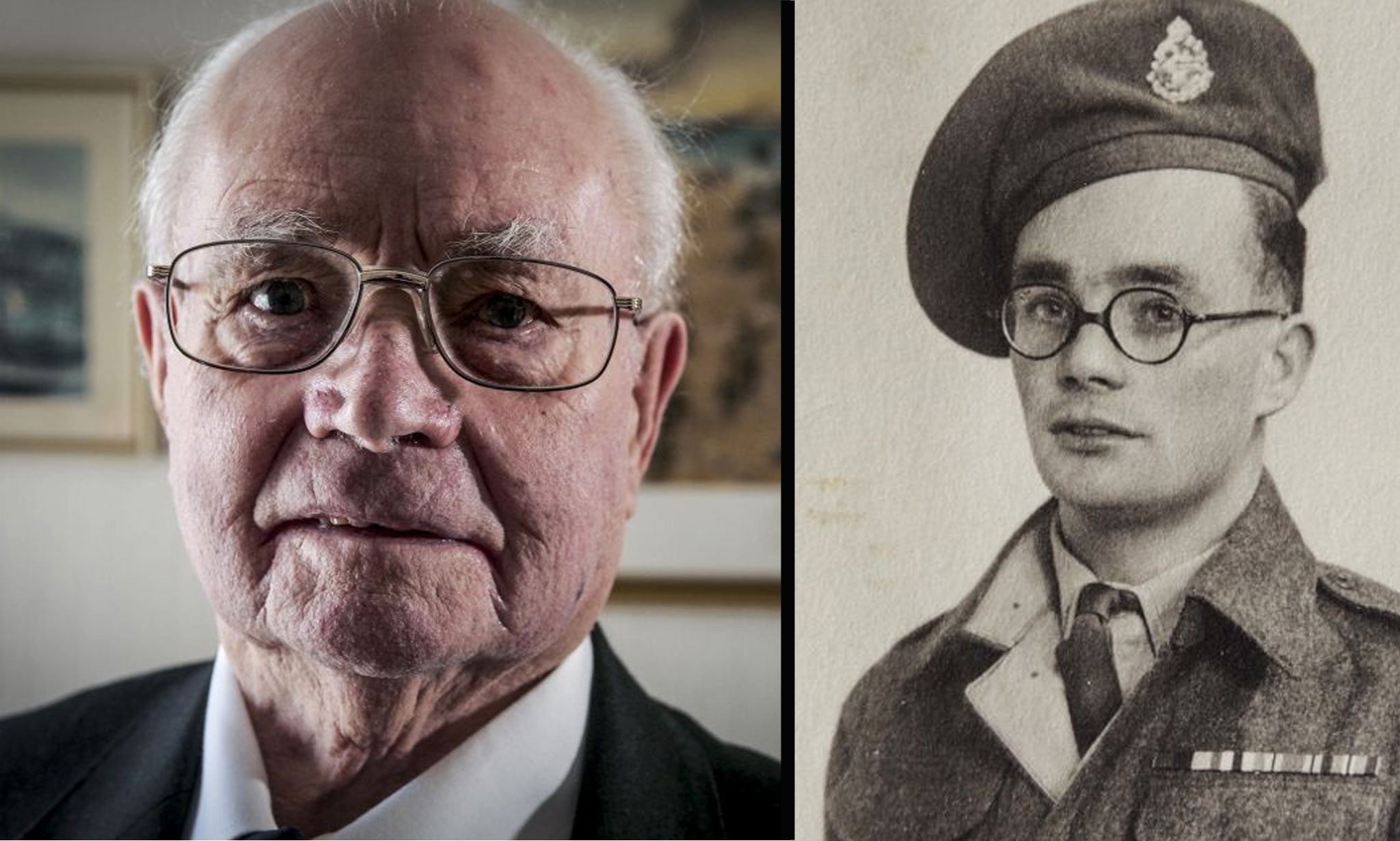Normandy Voices: Driver Mechanic Gordon Hornsby
Mr Hornsby drove a series of ambulances from Normandy to the Netherlands

Gordon Hornsby, 89, from North Shields, was a Driver Mechanic with 203 Field Ambulance Unit, Royal Army Service Corps
Gordon came ashore on Gold Beach on D-Day and was collecting wounded British soldiers a mile or so inland within hours. He drove a series of ambulances all the way from Normandy to the Netherlands where he was himself wounded in the battle of Arnhem.
“Monty (General Bernard Mongomery, commander of the allied invasion force on D-Day) came to our unit one day. We told him we had 18 sick men as well as the wounded. “What is their illness?” he asked. “Malaria, we said.” “Malaria? “ Monty asked. “In Normandy?”. We told him that they had been with him in the African desert. He went back to his staff car and came back with a packet of cigarettes for each of them. He was very keen on his PR, Monty.”
“In early August, I was driving four wounded men back from a bridgehead which the 59 division had thrown over the river Orne, near Thury Harcourt. The road was supposed to be one-way traffic but an oil tanker came charging the other way in the dark and knocked me off the road into a ravine. The ambulance rammed a tree only a few feets down or we would all have been finished.”
“A couple of weeks later, I saw a face I thought I knew and I said ‘hello mate’. He just stared at me and said: ‘I don’t know you’. Then I remembered. He was one of the four wounded soldiers in my ambulance that day at the ravine. I said: “Chum, you don’t know how lucky you are.”
Gordon often had to drive his ambulance under fire – something that was officially forbidden. He described one incident, after a “heavy battle” near Cheux, west of Caen. “We got seven wounded in, three on stretchers and four sitting…Just as we were leaving another barrage of mortars landed just over the other side of the road.”
Gordon, knowing that the German soldiers would probably change position before firing again, made a dash for the advance medical post in a farm nearby.. The Company Sergeant Major started to rollick me for coming along the road when I was under fire…The Commanding Officer told him to get out of his sight. He told me to go to the Officer’s Mess, which was just near, and poured me a glass of whisky.”
“It is important people remember, especially young people. Some of them seem to know nothing about the war. There are so few of us left now to tell the tale. We used to have 200 members in the Newcastle branch of the Normandy Veterans’ Association. Now there are only four of us left.”
“It is hard losing old comrades, of course, but the death of old men is the way things are supposed to be. Young men dying is what is wrong. Look at the public reaction to the murder of the young soldier in Woolwich. We lost thousands of young men in Normandy.”
“ I often think of Percy Blunt, who was the medical orderly in my ambulance. He was recommended for a medal after that day when we evacuated the soldiers under fire. Sadly, Percy, after our unit was broken up was attached to the Argyll and Sutherland Highlanders as a stretcher bearer and died on 27 September 1944. He is buried in a cemetery at Valkenswaald in Holland which I have visited several times.”
Related links
Join our commenting forum
Join thought-provoking conversations, follow other Independent readers and see their replies
Comments
Bookmark popover
Removed from bookmarks